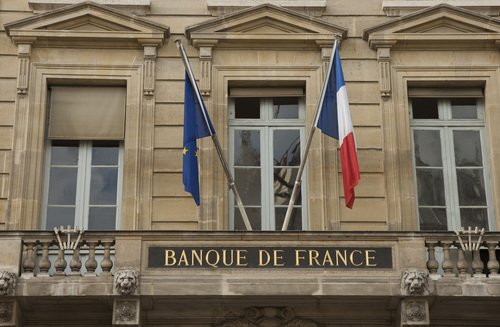Une note qui conditionne l’accès à des financements
Chaque année, les analystes de la Banque de France étudient les données comptables et financières des entreprises dont le niveau d’activité est supérieur à 750 000 euros, sur la base d’éléments descriptifs sur leur activité et leur capital, d’informations financières et comptables (chiffre d’affaires, montant des crédits bancaires…), et d’informations judiciaires.
Les analystes tiennent également compte d’éléments qualitatifs et prévisionnels que les chefs d’entreprise ont pu porter à leur connaissance.
La cotation de la Banque de France se compose :
- d’une cote d’activité qui représente le niveau d’activité de l’entreprise traduite par une lettre,
- d’une cote de crédit qui situe l’entreprise sur une échelle de risque de crédit à 13 positions traduite par un chiffre.
La cote de crédit est notamment fondée sur :
- l’examen de la situation financière de l’entreprise et de son évolution prévisible,
- l’appréciation portée sur son environnement économique,
- les relations commerciales ou économiques étroites qu’elle entretient avec d’autres entreprises,
- l’existence d’incidents de paiement ou de procédures judiciaires.
L’édition 2021 des cotations est particulière puisqu’elle fait suite à une longue phase de confinement qui a impacté l’activité des entreprises.
Pour les analystes de la Banque de France, la période actuelle est cruciale : « De très nombreuses entreprises clôturent leurs comptes au 31 décembre, et nous recevons leurs liasses fiscales à partir du mois d'avril », précise Samuel Coutant, adjoint du directeur analyse et cotation des bilans sociaux à la Banque de France, dans les colonnes du journal Les Echos.
La note délivrée par l’institution est importante car elle permet aux entreprises d’accéder à des financements.
Une idée plus précise sur la situation des entreprises
Alors que les banques estiment que la plupart des entreprises ont réussi à passer sans dégât le cap du confinement, des difficultés se concentrent sur certains secteurs tels que l’aéronautique, la restauration, l’hôtellerie, le tourisme ou encore l’événementiel. Pour accompagner les entreprises ayant été les plus touchées par la crise, le ministre de l’Économie et des Finances, Bruno Le Maire, a annoncé le 14 avril dernier, la mise en place d’un « dispositif de concertation et de conciliation ». Celui-ci vise à donner la possibilité aux acteurs les plus fragilisés d’étaler ou d’effacer une partie de leurs dettes. Les notes de la Banque de France permettront de se faire une idée plus précise de leur situation.
Ainsi, si pendant le premier confinement, les bilans présentés aux analystes de la Banque de France étaient plutôt bons, cette année, la tendance pourrait changer. « Les bilans 2020 sont forcément marqués par la crise, mais les perspectives sont beaucoup plus dégagées », indique Samuel Coutant.
